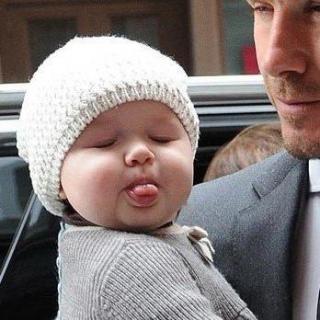
介绍:
Mai Meng
Definition: v. to sell cuteness; to fully display one’s cuteness in public in order to draw attention or otherwise benefit oneself.
________________________________________
How to use it:
A | Look at the man in the ad. All he did was holding a bottle of water , smiling and blinking his big eyes! And he got the look on his face like “Yes, I’m a pretty boy and I know it!”
B | That was some shameless mai meng. I bet everyone remembered him though.
A | Yeah he’s trending on Twitter right now.
The market economy only came to China three decades ago, yet people have quickly realized that everything can be a commodity. Be it youth, power or beauty, anything that humans lust after can be bought and sold.
In order to survive in today’s economy, everyone must sell something. Models sell their looks, doctors their training, athletes their muscle and singers their voice. Go to any bookstore or university and you will find titles of “the science of marketing” and or“find your own selling point” at “the right marketplace.”
So what’s your selling point? For the most attractive among us, it’s often being meng – a special brand of cuteness blessed with youthful innocence. It’s the sort of cuteness the rest of us can’t resist because it makes us forget our own mortality for a few precious seconds. It all started with baby animal photos and cat videos – we just love to look at them and we’d pay – in some way or another .
Because if they’re selling it, people are buying it.
If meng is a commodity in high demand, then mai meng is the act of capitalizing on cuteness (mai simply means ‘to sell’). It’s the science of marketing in action.
Those who mai meng – or sell their cuteness – may just put it on full display to show off how cute they are. flutter their eyelashes, pucker up or make love to the camera, whether it’s appropriate for the occasion. They know that their payment could come at any time – and in many currencies, be it money and privileges, or the attention and admiration that fuels them.
Moderate levels of mai meng are acceptable – But generally, it is considered selfish and annoying – like when that cute girl on your debate team wears a low-cut shirt on stage and no-one pays any attention to the great arguments your team make.
Wu Jis Cao
If you think deep down that human beings are all just animals– or if you feel trapped by moral rules and social conventions – this word is for you.
Humans can peacefully co-exist (well more or less, for some of the time) thanks to a bunch of rules invented long ago to restrict our animalistic urges, such as wearing underwear to work and seeking consent before initiating coitus. In the Chinese language, those rules are loosely called jiecao.
In other words, jiecao is the bottom line that we, as social animals, try to stay above so that others can bear being around us. When you comply with these standards you can say that you have jiecao. Examples would be wearing pants to work (thumbs up!) and only defecating in designated spots (called toilets).
But alas, sometimes the rules are just too much. Sometimes you feel like breaking off the belt of social convention and being free. Sometimes you just need to be an animal and stop pretending. That’s when you are wujiecao, which means to be without any moral or social rules.
When you say wujiecao about other people, it loosely translates as: “I think what you said was inappropriate but I somehow enjoyed it and found it exhilarating, so I thank you for saying it.

